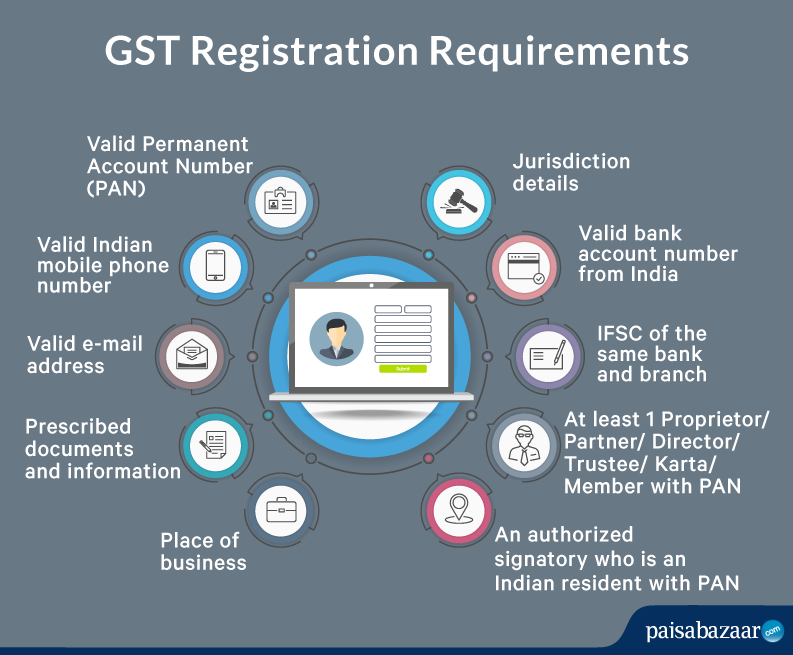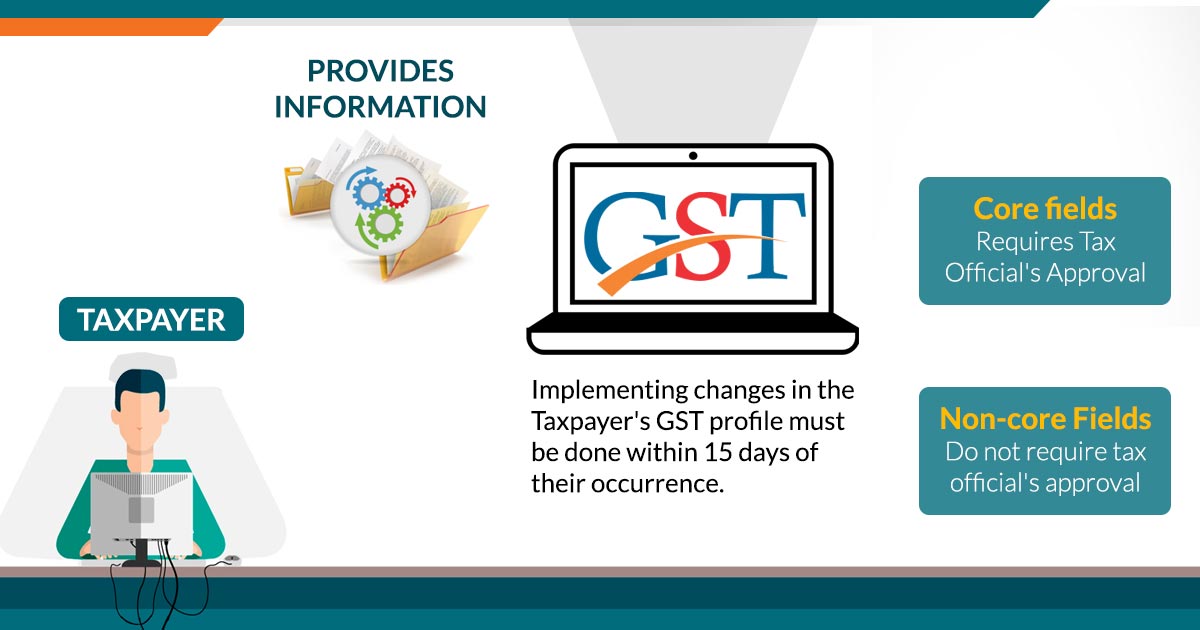Navigating the Intricacies of GST Registration: A Comprehensive Overview for Organization Owners
Navigating the intricacies of GST enrollment can be a difficult task for several company owner, as it involves a myriad of rules, guidelines, and processes that must be followed. With the ever-evolving landscape of tax regulations, making sure conformity and recognizing the ins and outs of GST registration is critical for the smooth operation of any type of business. From figuring out eligibility and collecting the required documents to enhancing procedures for maximum effectiveness, this thorough guide intends to provide local business owner with the knowledge and devices required to navigate the complexities of GST enrollment effectively.
Qualification for GST Enrollment
Entrepreneur need to fulfill specific requirements to establish their eligibility for GST registration. As a whole, businesses with a yearly turnover surpassing a particular limit are required to register for Product and Provider Tax Obligation (GST) This threshold varies by country, yet it is vital for business owners to remain educated about the particular guidelines in their territory. In addition, organizations involved in interstate supplies, ecommerce, or the arrangement of specific defined items and solutions may likewise be mandated to sign up for GST, no matter their turn over.
Moreover, organizations that are registered under any previous tax obligation program, such as Barrel or service tax obligation, are commonly needed to change to GST registration. By sticking to the required criteria, services can smoothly browse the complexities of GST registration and run lawfully within the tax obligation framework.
Papers Needed for Enrollment
To complete the GST registration process, companies require to collect and submit a detailed collection of papers. The crucial files needed for GST registration normally consist of evidence of service registration or consolidation such as the Certificate of Incorporation, partnership deed, or any type of various other enrollment certificate.
Additionally, particular documents connected to the nature of business, such as a list of services or items provided, HSN codes for products, and SAC codes for solutions, might be needed - Why choose CFO Account & Services for GST registration in Singapore. It is important for companies to guarantee that all papers submitted are accurate, current, and in the recommended format to avoid any kind of delays or complications in the GST enrollment procedure
Process of GST Registration
Having actually assembled the requisite documents, companies continue to start the GST enrollment process by involving with the on the internet website designated for registration. This on the internet portal is the Product and Services Tax Network (GSTN) website, which acts as the main system for all GST-related activities in India. Upon accessing the site, businesses are needed to fill in the GST registration kind with accurate details regarding their organization activities, turn over, and various other relevant info.
As soon as the kind is finished and sent on the site, the GSTN verifies the details Home Page provided by the company. Following successful verification, a GST enrollment certificate is issued to the business entity.
It is necessary for companies to make sure that the info offered during the GST registration process is accurate and approximately day to stay clear of any type of prospective problems or delays in obtaining the GST registration certification.
Recognizing GST Conformity

Organizations require to be knowledgeable about the different GST compliance requirements based upon their turn over, nature of services or products, and the states in which they run. It is important to stay updated on any adjustments in GST regulations and guidelines to stop any type of non-compliance issues.
Non-compliance with GST guidelines can lead to significant fines, fines, and even legal effects. Consequently, services should spend time and resources in educating themselves and their team on GST compliance. Seeking specialist support from tax obligation experts or experts can additionally assist in browsing the weblink complexities of GST conformity and ensuring that businesses run within the legal framework.

Tips for Optimizing Organization Workflow
For improved performance and productivity in service operations, strategic preparation and structured processes are necessary components. One suggestion for maximizing business operations is to utilize technology efficiently.
An additional important aspect is prioritizing jobs based upon their importance and due dates. By producing a clear power structure of tasks and setting practical timelines, services can make certain that essential activities are finished in a timely manner. In addition, cultivating a society of open communication and collaboration among employee can cause raised performance and innovation.

Final Thought
To conclude, browsing the complexities of GST registration requires a clear understanding of eligibility criteria, necessary files, registration procedures, and compliance requirements. By adhering to these guidelines and optimizing organization procedures, organization proprietors can make sure smooth procedures and compliance with the GST policies. It is important for businesses to remain enlightened and upgraded on GST guidelines to prevent any type of penalties or lawful concerns.
The crucial papers required for GST registration typically consist of evidence of company registration or unification such as the Certification of Incorporation, collaboration action, or click site any various other registration certificate.Having actually set up the requisite documentation, organizations continue to initiate the GST enrollment process by involving with the on the internet portal marked for registration. Upon accessing the website, companies are called for to fill up out the GST registration type with accurate information regarding their organization activities, turn over, and other pertinent info.
In order to keep adherence to GST guidelines and avoid charges, businesses have to prioritize recognizing GST compliance. By sticking to these guidelines and enhancing business operations, organization owners can make sure smooth operations and compliance with the GST laws.